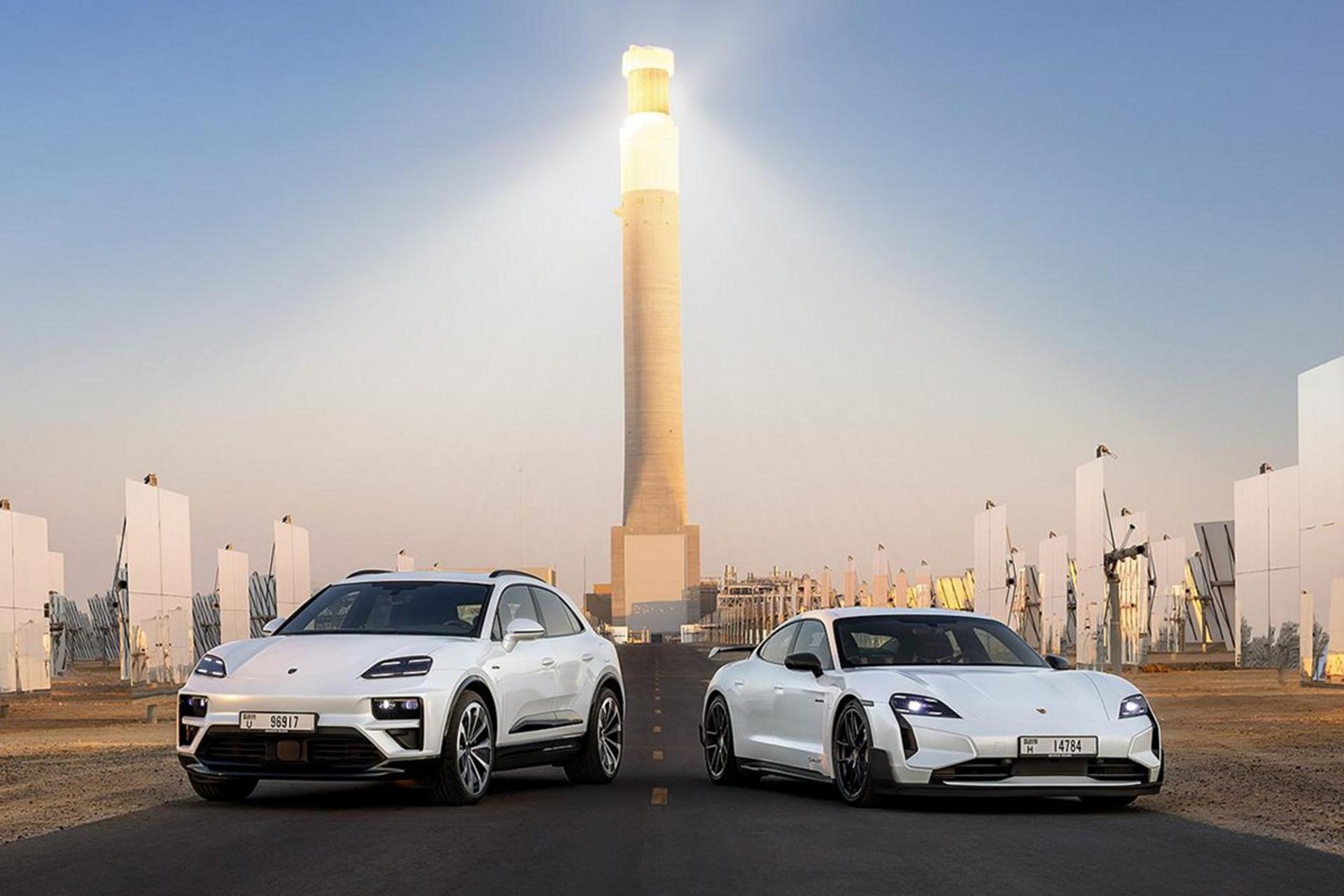This post was originally published on Sustainability Times
Source: Sustainability Times
| IN A NUTSHELL |
|
Porsche is making headlines with its bold plan to recycle electric vehicle (EV) batteries. The company aims to extract valuable raw materials from old batteries to produce new ones for its electric models. This move is not only a step towards sustainability but also a strategic decision to increase independence from unstable raw material markets. As Porsche embarks on this pilot project, it hopes to scale up the recycling process and contribute significantly to its circular economy strategy.
Porsche’s Ambitious Recycling Initiative
The German automaker has always been at the forefront of innovation, and its latest undertaking is no different. Porsche is tackling the complex challenge of recycling high-voltage batteries from electric cars. By extracting raw materials from these used batteries, the company plans to create new ones for its future electric vehicles. This initiative is a testament to Porsche’s commitment to sustainability and reducing dependency on volatile raw material markets.
Porsche’s board member, Barbara Frenkel, emphasized the importance of innovative recycling processes to achieve these goals. The pilot project is an experimental phase where the company aims to perfect a scalable recycling solution. If successful, this could set a precedent for the automotive industry, encouraging other brands to follow suit in adopting sustainable practices.
The Recycling Process: From Black Mass to New Batteries
The recycling process at Porsche’s facility involves three critical phases. Initially, used EV batteries are shredded by powerful machines, resulting in a granulate mixture known as ‘black mass.’ This mixture contains valuable materials such as lithium, nickel, cobalt, and manganese. The next stage involves separating the black mass into individual raw materials, which are essential for producing new batteries.

The final phase consists of selecting a specific proportion of these materials that meet quality and purity standards to manufacture batteries for new electric Porsches. Currently, Porsche has produced 65 tons of black mass, showcasing the potential to revolutionize its production processes. By mastering this process end-to-end, Porsche aims to advance its circular economy strategy significantly, aligning with European Union regulations that mandate the recovery of battery materials.

Compliance with European Regulations
Porsche’s recycling initiative is not just about sustainability; it is also about compliance with European Union regulations. These regulations require car manufacturers to recover battery materials through comprehensive recycling programs. Specifically, there is a target to recover 80% of lithium by 2031. Porsche’s efforts in this area could lead to significant progress, ensuring that the company meets and potentially exceeds these requirements.
These decommissioned wind turbine blades transformed into asphalt are paving the roads of tomorrow
This initiative also serves as a model for other automakers, demonstrating that it is possible to achieve both environmental and regulatory goals simultaneously. By successfully implementing this recycling process, Porsche could set a new standard for the industry, influencing others to adopt similar strategies and contribute to a more sustainable future.
The Global Impact and Future Potential
The impact of Porsche’s battery recycling initiative extends beyond the automotive industry. Recycling 95% of materials from lithium-ion batteries has the potential to significantly reduce the need for mining valuable metals. This reduction in mining activities not only preserves natural resources but also decreases the environmental impact of extracting these materials.
While only 5% of EV batteries are currently being recycled, Porsche’s project highlights the untapped potential in this area. By leading the way, Porsche hopes to inspire other brands to recognize the economic and environmental benefits of recycling. Ultimately, this initiative could reshape the global approach to battery recycling and contribute to a more sustainable and economically viable future.
Porsche’s bold move to recycle EV batteries is a significant step towards a more sustainable future. By extracting valuable raw materials and reducing dependency on unstable markets, the company is paving the way for more environmentally friendly practices in the automotive industry. As other brands observe Porsche’s progress, one question remains: will they follow suit and contribute to a greener future?
The post Porsche Will Crush Its Old EVs to Give Birth to Faster, Greener Monsters Than Ever Before appeared first on Sustainability Times.


 Porsche launches a revolutionary initiative to recycle electric vehicle batteries, aiming for sustainability and innovation.
Porsche launches a revolutionary initiative to recycle electric vehicle batteries, aiming for sustainability and innovation. The process involves shredding used batteries into ‘black mass,’ which contains valuable materials like lithium and cobalt.
The process involves shredding used batteries into ‘black mass,’ which contains valuable materials like lithium and cobalt. Porsche aligns with European Union regulations, aiming to recover 80% of lithium by 2031 through comprehensive recycling programs.
Porsche aligns with European Union regulations, aiming to recover 80% of lithium by 2031 through comprehensive recycling programs. This initiative could reshape global battery recycling, reducing the need for mining and inspiring other brands to adopt sustainable practices.
This initiative could reshape global battery recycling, reducing the need for mining and inspiring other brands to adopt sustainable practices.


0 Comments